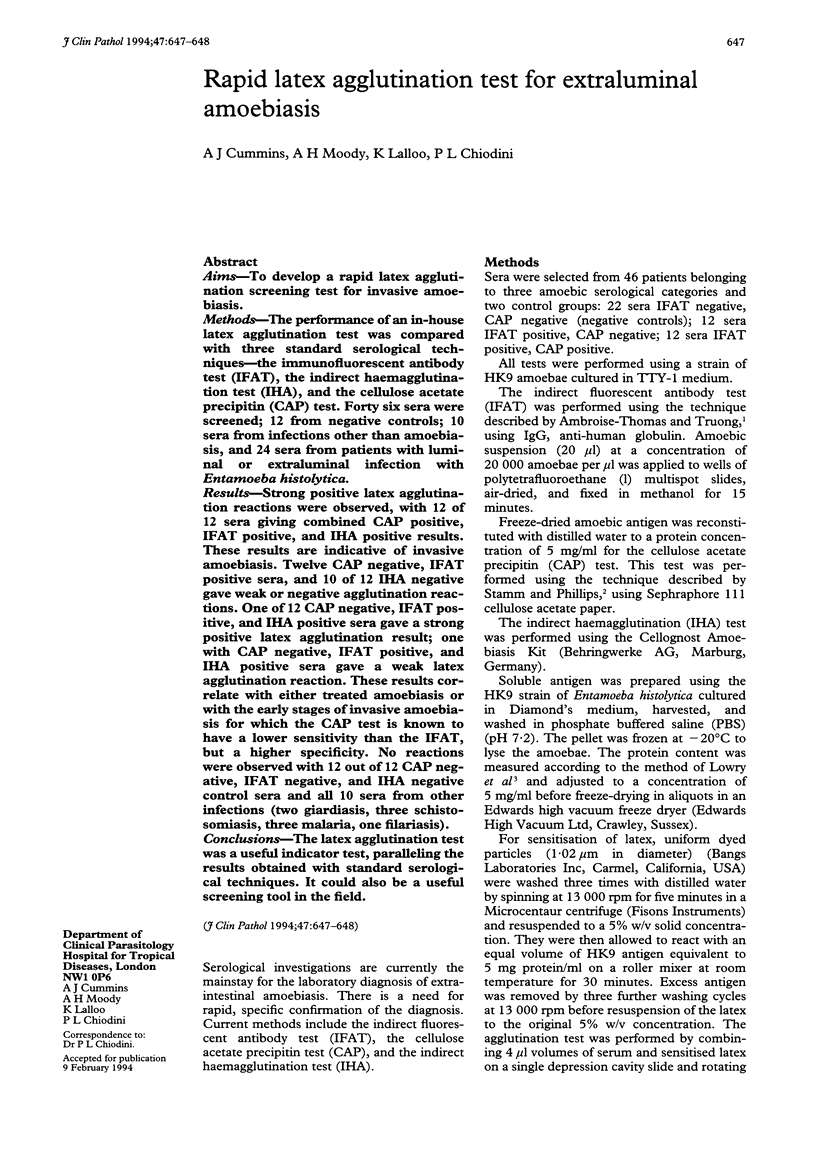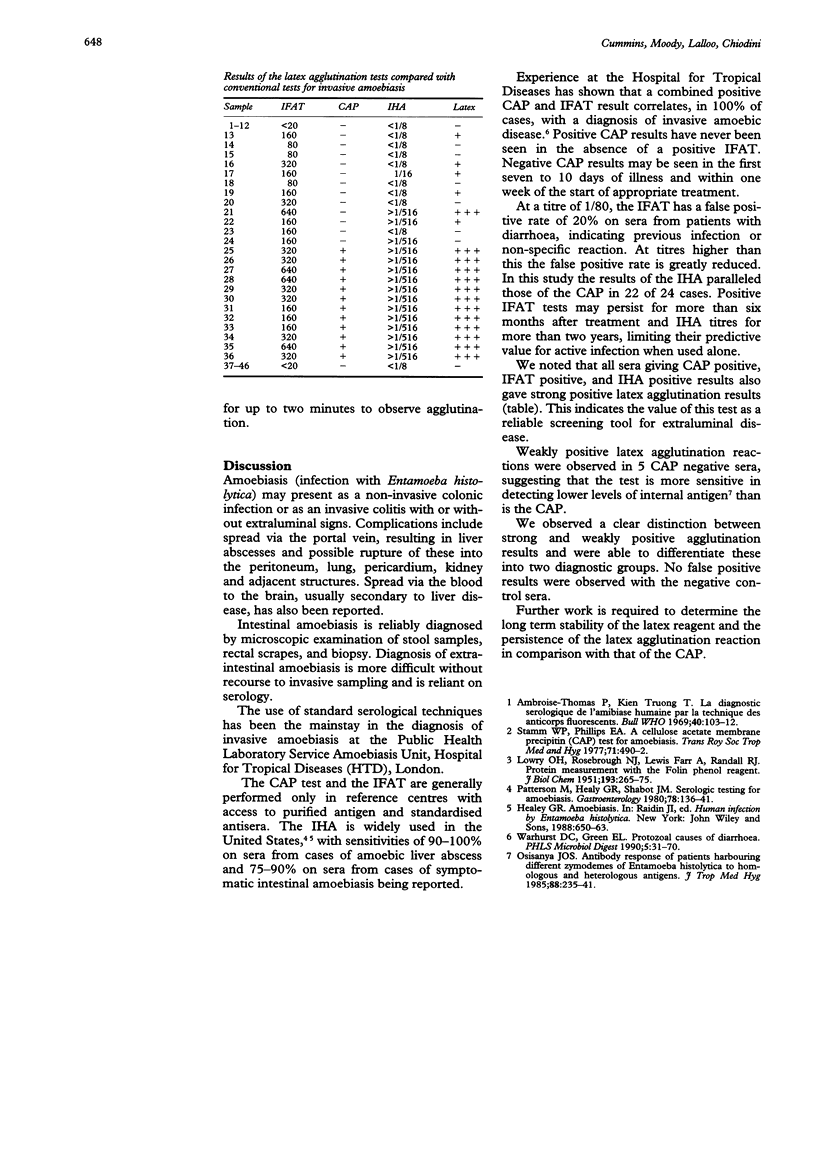Abstract
AIMS--To develop a rapid latex agglutination screening test for invasive amoebiasis. METHODS--The performance of an in-house latex agglutination test was compared with three standard serological techniques--the immunofluorescent antibody test (IFAT), the indirect haemagglutination test (IHA), and the cellulose acetate precipitin (CAP) test. Forty six sera were screened; 12 from negative controls; 10 sera from infections other than amoebiasis, and 24 sera from patients with luminal or extraluminal infection with Entamoeba histolytica. RESULTS--Strong positive latex agglutination reactions were observed, with 12 of 12 sera giving combined CAP positive, IFAT positive, and IHA positive results. These results are indicative of invasive amoebiasis. Twelve CAP negative, IFAT positive sera, and 10 of 12 IHA negative gave weak or negative agglutination reactions. One of 12 CAP negative, IFAT positive, and IHA positive sera gave a strong positive latex agglutination result; one with CAP negative, IFAT positive, and IHA positive sera gave a weak latex agglutination reaction. These results correlate with either treated amoebiasis or with the early stages of invasive amoebiasis for which the CAP test is known to have a lower sensitivity than the IFAT, but a higher specificity. No reactions were observed with 12 out of 12 CAP negative, IFAT negative, and IHA negative control sera and all 10 sera from other infections (two giardiasis, three schistosomiasis, three malaria, one filariasis). CONCLUSIONS--The latex agglutination test was a useful indicator test, paralleling the results obtained with standard serological techniques. It could also be a useful screening tool in the field.
Full text
PDF

Selected References
These references are in PubMed. This may not be the complete list of references from this article.
- Ambroise-Thomas P., Truong T. K. Le diagnostic sérologique de l'amibiase humaine par la technique des anticorps fluorescents. Bull World Health Organ. 1969;40(1):103–112. [PMC free article] [PubMed] [Google Scholar]
- LOWRY O. H., ROSEBROUGH N. J., FARR A. L., RANDALL R. J. Protein measurement with the Folin phenol reagent. J Biol Chem. 1951 Nov;193(1):265–275. [PubMed] [Google Scholar]
- Osisanya J. O. Antibody response of patients harbouring different zymodemes of Entamoeba histolytica to homologous and heterologous antigens. J Trop Med Hyg. 1985 Aug;88(4):235–241. [PubMed] [Google Scholar]
- Patterson M., Healy G. R., Shabot J. M. Serologic testing for amoebiasis. Gastroenterology. 1980 Jan;78(1):136–141. [PubMed] [Google Scholar]
- Stamm W. P., Phillips E. A. A cellulose acetate membrane precipitin (CAP) test for amoebiasis. Trans R Soc Trop Med Hyg. 1977;71(6):490–492. doi: 10.1016/0035-9203(77)90141-9. [DOI] [PubMed] [Google Scholar]


